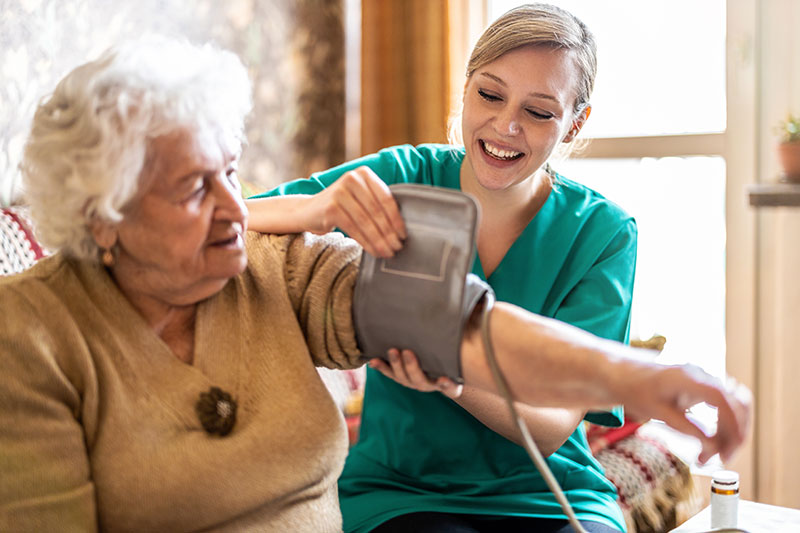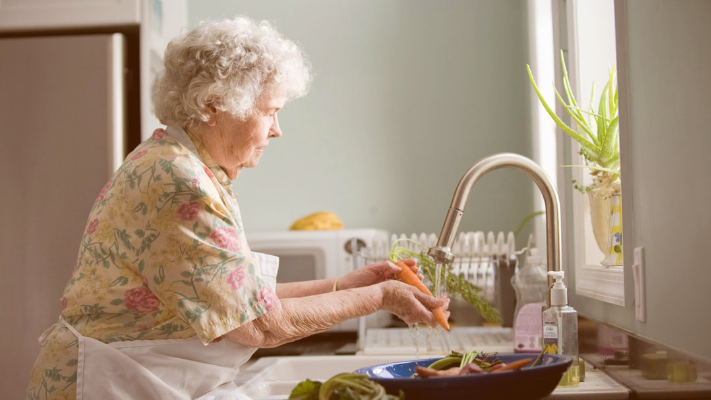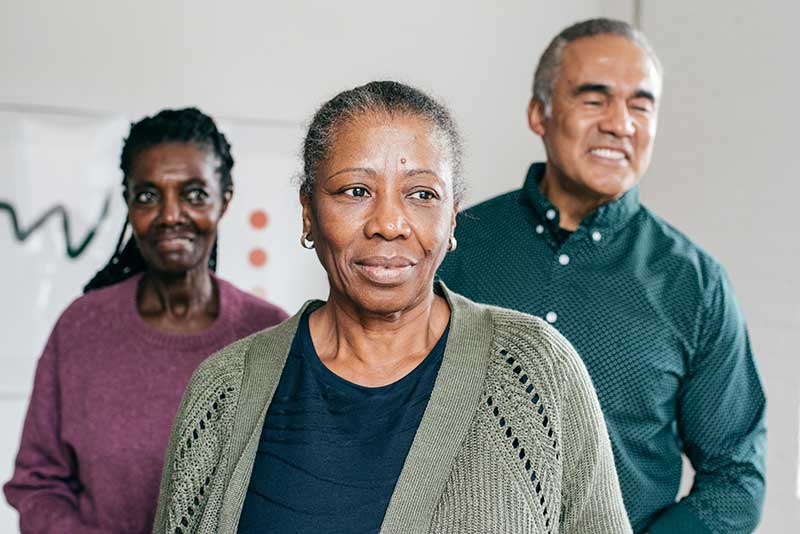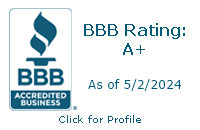Arranging reliable home care for a loved one can be a daunting task.
Not only do you want to find the best possible care, you also need to navigate a complex set of rules and regulations from insurance companies, medical providers, and government agencies.

One option—the Consumer Directed Personal Assistance Program (CDPAP)—offered by the state of New York enables patients to choose a friend or family member as their caregiver and use Medicaid funding to pay for their help. This is an alternative to traditional home health aide or home attendant service, and the patient or a family member (also known as a Designated Representative) is responsible for training and scheduling the caregiver (or Personal Assistant).
There are many benefits for people who enter this program—the patient is able to experience care from a friend or family member, and the caregiver receives an income to cover their time. Jose Arias is a CDPAP patient who receives care from his mother-in-law. “It’s so much more comfortable being with someone I know,” he explains. “My mother-in-law cooks and cleans for me and is able to go out and run errands for me. Communication and understanding is better—and it’s more enjoyable spending time with a family member.”
Basic terminology
As with other government-funded programs, learning the language is a critical first step for understanding CDPAP requirements. Here’s a short glossary of words associated with the program:
- Consumer: A Medicaid recipient whom it has been determined by a Medicaid Managed Care Plan (and in most cases, by Medicaid Choice, New York’s managed care enrollment program) to be eligible to participate in the consumer directed personal assistance program.
- Personal assistant: The adult caregiver and Medicaid beneficiary; in other words, the person paid by Medicaid (through a Fiscal Intermediary, such as Special Touch CDPAP) to care for the consumer. A patient may have more than one caregiver.
- Fiscal Intermediary: An entity that has been approved by Medicaid to contract with Medicaid Managed Care Plans in order to provide wage and benefit processing for personal assistants in addition to other fiscal intermediary responsibilities
- Designated representative: A person that has been delegated the responsibilities of a consumer, typically when a consumer has been deemed as non-self directing. This individual has the authority to perform the responsibilities of a self-directing consumer such as hire, instruct, supervise, and manage the care being provided to the consumer..
- ADLs: Activities of daily living, which can include non-medical care like companionship, meal preparation, basic housekeeping, and assistance with personal hygiene
- Skilled tasks: Medical procedures that an in-home aide cannot legally perform; personal assistants can do certain tasks that otherwise can only be performed by a registered nurse, such as suctioning tracheostomies, caring for wounds, and administering oxygen or insulin injections
Program eligibility
In many cases, a family or friend of a patient is already performing some level of care and is surprised to find out he or she is eligible for payment from Medicaid. The CDPAP is best for patients with at least one family member or friend who can set aside time to help them accomplish daily tasks.
A CDPAP patient can have more than one caregiver, so family members can share the responsibility to better accommodate their schedules. This is the case for Natividad Velez, whose two daughters are in their 30s and take turns providing round-the-clock care.
“I wouldn’t be comfortable changing or showering with someone I didn’t know or having someone I don’t know come into to my own home,” explains Velez. “This way, I can have my own family with me and feel comfortable. I was really feeling lonely before I found out about the program, but now I get to see my daughters and their kids so much more.”
Eligibility is established when home care is ordered by a doctor, a physician’s assistant, or nurse practitioner. There are also a few additional points to keep in mind. A “legally responsible” adult responsible for the consumer cannot be the consumer’s personal assistant. In the eyes of the law, spouses are legally responsible for each other and parents are also legally responsible for children under 21. This means a spouse, or a parent of a child under 21 cannot be the patient’s personal assistant, however the consumer’s child, neighbor, friend, or other family member usually qualifies. If an adult over 21 requires home care, his or her parents can be his or her personal assistant.
Likewise, if the patient cannot manage his or her own care and requires help from a designated representative, that person cannot also be the patient’s personal assistant. For example, if a daughter is managing the care of her mother with Alzheimer’s disease, she cannot receive money from Medicaid for also providing her mother’s care. On the other hand, if the mother’s care is managed by her own husband or spouse the daughter would most likely qualify.
Payment policies and procedures
The CDPAP program helps caregivers earn an income. Hourly pay varies, but it can include overtime depending on the patient’s needs. Christopher Sacks is a CDPAP personal assistant who is currently supporting his mother through chemotherapy.
“Even before I knew about the program, I was helping my mom seven days a week,” he explains. “But it was very difficult because I also have a family to support. CDPAP now makes it possible for me to take care of my two daughters and my mom. And no one is going to do this job like a son or daughter—I want the best for her.”
One worry that patients have is that they will be unable to manage the administrative aspects of their care. Fortunately, the CDPAP program requires the involvement of a “fiscal intermediary”, such as Special Touch Home Care, which offers administrative support. The fiscal intermediary processes hiring documentation and other forms on behalf of the patient, as well as facilitating payments through Medicaid.
Transitioning to an in-home aide
When a family chooses to enroll in CDPAP, invariably over time their circumstances will change and sometimes the caregiver is unable to continue to help. Special Touch Home Care offers CDPAP services as well as traditional home healthaide (HHA) and home attendant services which are supervised by a Registered Nurse. All Special Touch caretakers have obtained their Home Health Aide Certification, passed federal criminal background checks, and continue to receive significant continuing education during their employment. This means that if a patient’s personal assistant is no longer able to provide care and the patient (or his or her designated representative) cannot find a suitable replacement, Special Touch can quickly arrange for a trustworthy professional to step in and take over.
If you feel that your family may qualify for the CDPAP program or would like to find out more, feel free to get in touch with our team. Request more information and a Special Touch Home Care specialist will reach out to you.


WE’RE HERE TO HELP
Request Your Free Consultation
Fill out this form for a completely FREE consultation with a care representative.
The Most “Liked” & Highest Reviewed In-Home Care Company in New York
Our team is here to make your life easier when you need help. That’s why our customers give us high ★★★★★ satisfaction ratings.
Resources And Blog Posts





